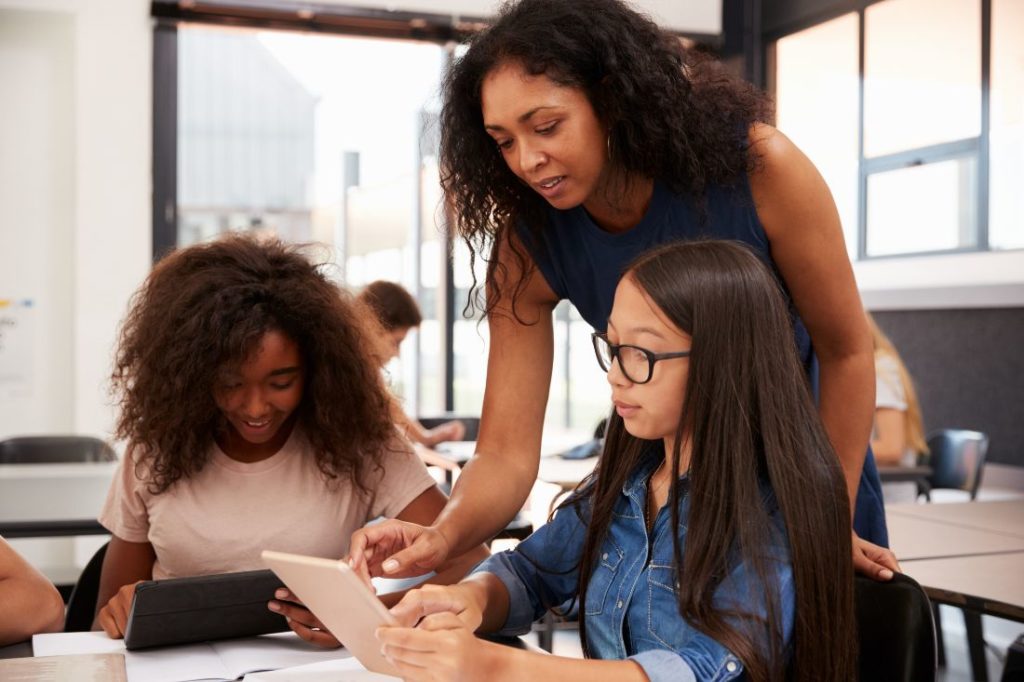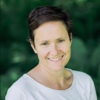In Homer’s ancient story The Odyssey, the goddess Athena, disguised as old man Mentor, reveals to the hero’s son the right path to take. Skip forward several millennia and across the Atlantic to an urban high school preparing teens for life after graduation, and the image of mentor-as-lone-sage doesn’t quite paint the picture. If one New York school—and the resources it brings to bear—is any indication, success takes a village of mentors, both formal and informal.
Marble Hill School for International Studies, in the Kingsbridge neighborhood of the Bronx, has a 96% nonwhite and overwhelmingly first-generation-immigrant student body of about 450, speaking more than 35 languages. Despite any obstacles students face, since its creation in 2002, the school has enjoyed impressive outcomes, boasting a college readiness score 27% higher than the city’s in 2019.
A range of foundations and community-based organizations help meet the school’s ambitious goal of ensuring both high school graduation and college matriculation. Marble Hill partners identify and nurture high academic achievers as candidates for highly selective colleges. Scores of Marble Hill students head upstate each summer to Cornell University for pre-college coursework and also to Syracuse, New York University, Tufts, Skidmore and Marist. Many earn full college scholarships through the highly selective Posse Foundation and similar organizations.
But as longtime principal Kirsten Larson points out, the school is charged with serving all students well. “If they’re top-performing before they get into those programs, they’ve got the skills and habits and support at home to motivate them to do well,” Larson says. “It’s the others who need help.”
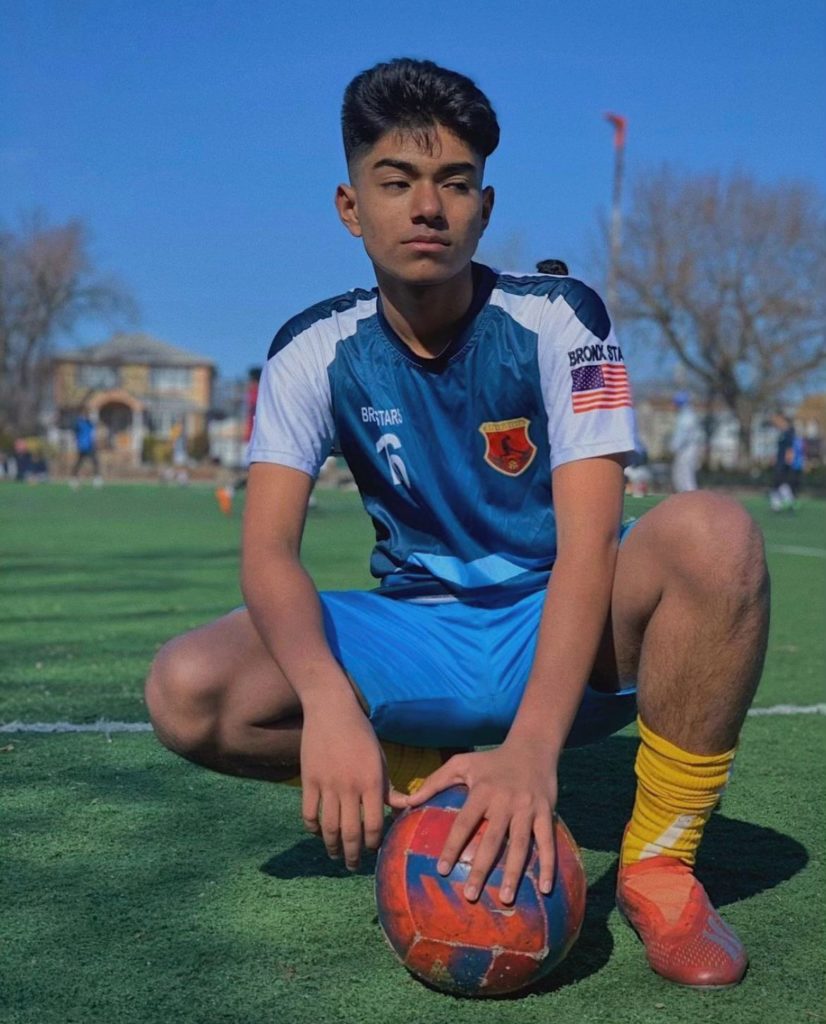
All Marble Hill students get access to two key supports, the College Bound Initiative (CBI) and iMentor. A CBI college counselor works full-time in conjunction with Marble Hill’s teachers and leadership to set up SAT tests, coordinate college visits and answer parents’ many questions.
Seniors take a college readiness course, with the teacher and CBI counselor coordinating efforts to ensure every student fills out a FAFSA form and completes, at minimum, the application for the city university system. Mentors help fill in the gaps.
iMentor pairs every student in the building with an adult for two years, with the option of continuing for another two. Mentors and mentees are expected to touch base weekly, and it’s the frequency and longevity of the program that makes the difference, Larson says: “If students get a mentor in ninth grade that follows them through? It’s so powerful. It’s huge.”
Monthly in-person get-togethers take place at the school and provide another rare opportunity. “Imagine walking into that cafeteria and you see 50 different adults,” Larson says. “These kids are interacting with the other mentors, getting to know their good friends’ mentors. It’s massive exposure.”
Annas Islam was seeking a specific kind of guidance from his mentor. From Bangladesh by way of Dubai, Islam began developing his talent for soccer early in life. When he moved to the Bronx, he found his way to Marble Hill—though not an obvious or convenient choice—through soccer. Now a senior at Marble Hill, Islam serves as team captain and aims to play for a Division 1 college and then professionally.
At first, Islam didn’t think he’d get help from his mentor, since he was paired with a baseball player. “I didn’t know anything about baseball,” he says. “But as time went by, I liked my mentor. He knew a lot about college sports in general, not just, like, baseball.” Islam is now fielding competing offers for college athletic scholarships.
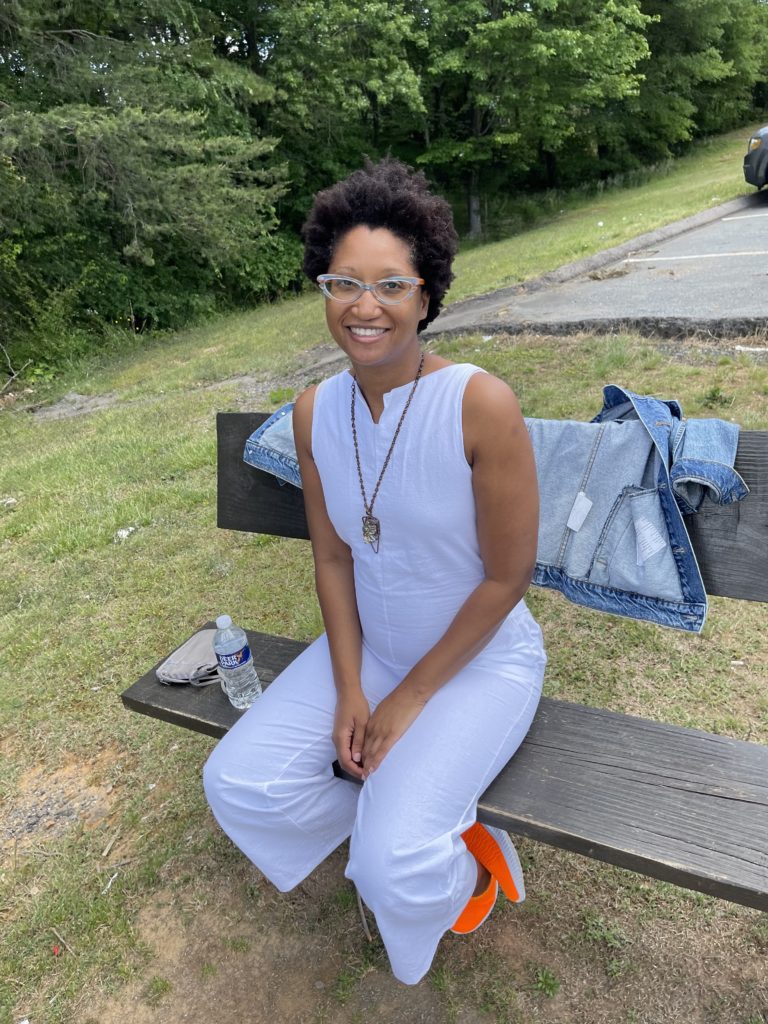
Mentor Lori Clement remembers her first meeting with her mentee, Luisais Taveras, who was a sophomore at Marble Hill and, Clement says, as self-directed a student as one could find. “She sat down the first day and said, ‘All right, Lori, I’ve got this list of scholarships; this is what we’re working toward,’” Clement remembers. “She’s got the organization, planning and confidence of a 40-year-old chief operating officer.” Clement says she encouraged Taveras to loosen up, have fun and put the books away. Taveras, who was born in the Dominican Republic and is the first in her family to attend college, believes Clement did more than that.
“I didn’t have much of a sense of self,” Taveras says. “So, Lori coming into my life shed light on who I can be as a human, on my potential overall.” Taveras credits Marble Hill staff for her successful matriculation through Hunter College, completion of a bachelor’s within four years and a Fulbright scholarship to work in Mexico. “They went out of their way to ensure that we’d be the best possible candidates for these opportunities,” she adds.
Lately, Larson has been thinking that Marble Hill’s college readiness class should be renamed “future readiness.” It’s clear that students should be made aware of viable alternatives, such as vocational training, to traditional higher education. Both Marble Hill and its partners are aware of the increasing numbers of students weighing the risks of incurring mountainous debt and asking, “Is college even worth it?”
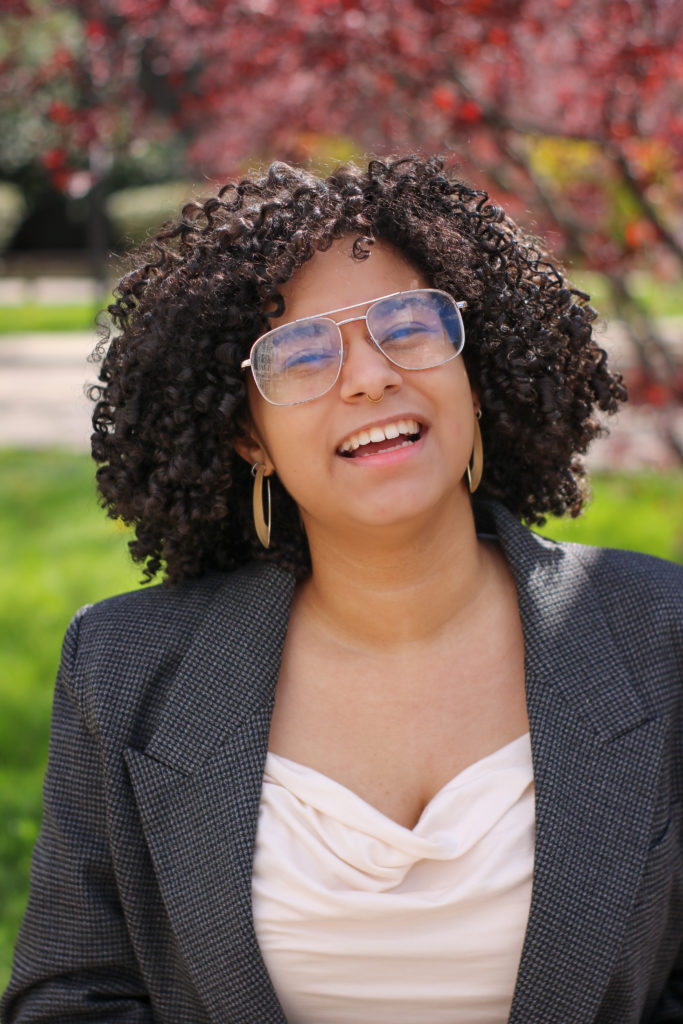
Heather Wathington, CEO of iMentor, hears the same tough question, which she knows sounds ludicrous to many of her generation: “‘Of course, you’re better off going to college!’ we say.” But the organization is listening to students’ clear-eyed concerns, which have led it to get intentional about connecting real-world work options with student interests. As Islam discovered, iMentor encourages mentors to share practical information with their mentees.
As the paths to success seem to be both narrowing and widening, perhaps the right path, not just for first-generation college-goers but for any teen, passes through schools such as Marble Hill, where reading, writing and arithmetic are just the tip of the iceberg.
This article originally appeared in the January/February 2023 Issue of SUCCESS magazine. Photos courtesy of Marble Hill School for International Studies
Sheela Clary is a freelance reporter and writer based in Berkshire County, Massachusetts. A long-time educator and nonprofit leader, she's interested in education, income inequality, and creativity, and publishes her features and personal essays regularly on The Berkshire Edge.
- Sheela Claryhttps://www.success.com/author/sheela-clary/September 19, 2023
- Sheela Claryhttps://www.success.com/author/sheela-clary/May 22, 2022



